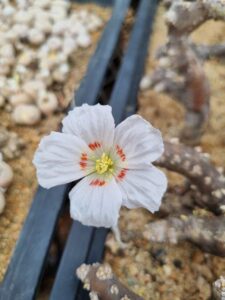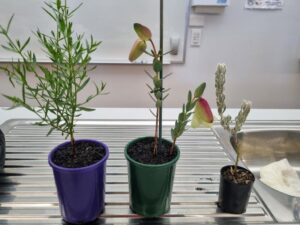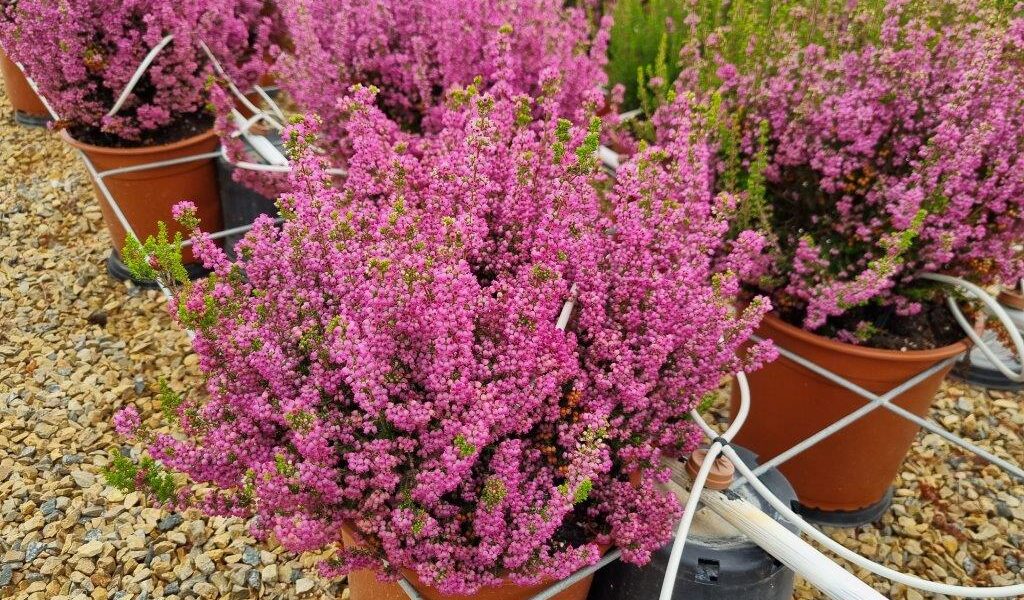A journey through South Africa to Geelong
By Stephanie Hastie
Thanks to the generous sponsorship of the International Plant Propagator’s Society (IPPS) and through their exchange program, I had the extraordinary opportunity last year to embark on a horticultural adventure that spanned continents. This scholarship took me on a journey of discovery through South Africa, a land of unparalleled botanical diversity, which beckons horticultural enthusiasts with its vast array of endemic plant species and breathtaking landscapes.
During my three weeks there, I travelled from the mountains of Magaliesburg, to the lush greenery and coastal landscapes of Durban, and then down to the fynbos of Cape Town. The experience provided me with invaluable insights into the diverse world of plant propagation and cultivation. It also afforded the opportunity to attend IPPS conferences in both Port Edward, which is located on the south coast of KwaZulu-Natal, South Africa, and also the port city of Geelong, Victoria in Australia.
South African sojourn: Unveiling nature’s masterpieces

During my time in South Africa, I had the privilege of meeting with local horticulturists and researchers and benefiting from their knowledge. Together, we delved into the intricacies of indigenous plant species and explored innovative propagation methods tailored to their relevant specialities and to the environmental conditions of the different regions.
One of the many highlights of my South African experience was the opportunity to visit renowned botanical gardens, such as Kirstenbosch National Botanical Garden, where I witnessed firsthand their efforts to preserve and protect endangered plant species (such as Conophytum spp. and Monsonia spp.). It was a sad reminder of the environmental desolation the plant poaching industry is causing. However, it was also a reminder of the critical role that botanical gardens and horticulturists can play in safeguarding our botanical heritage for future generations.
Exploring biodiversity hotspots
South Africa boasts three distinct biodiversity hotspots, each teeming with endemic plant species that are found nowhere else on earth. The Succulent Karoo dazzles visitors with its kaleidoscope of succulent treasures, while the Cape Floristic Region serves as a sanctuary for the majority of South Africa’s endemic flora. Meanwhile, the Maputaland–Pondoland–Albany Hotspot harbors a staggering 8,100 plant species, underscoring the country’s status as a global biodiversity hotspot.
In Cape Town, I was enchanted by the Mediterranean climate and the abundance of plant life that thrives within it. As I explored Shadowlands nursery and the wider Cape Floristic Region, I couldn’t help but marvel at the beauty and strength of South African plants, many of which have found a second home (for better and for worse!) in the gardens and wider landscapes of my hometown, Adelaide. Nurseries like Arnelia are leading the charge in propagating native species, ensuring that future generations will continue to marvel at the wonders of South Africa’s Proteas, Leucadendrons, and Leucospermums.
Geelong: Nurturing growth and innovation
After bidding farewell to South Africa in March, my journey continued in May when the IPPS gathered for the 2023 Australian conference. Nestled along the picturesque shores of Port Phillip Bay, Geelong provided a scenic backdrop for exploring cutting-edge propagation techniques and sustainable cultivation practices.

In Geelong, I had the opportunity to immerse myself in hands-on workshops and seminars led by industry experts, gaining invaluable insights into the latest trends and technologies shaping the future of horticulture. From tissue culture methods to provenance propagation, I was inspired by the spirit of innovation and passion for plants that was present in every presentation, nursery tour, and workshop that formed part of the conference.
Moreover, my time in Geelong was enriched by the camaraderie of fellow “Six-pack” members (a group of six young propagators from across Australia) and members of the IPPS.
A grateful acknowledgment
As I reflect on my journey through South Africa and Geelong, I am deeply grateful to the International Plant Propagator’s Society for making this unforgettable experience possible. Their unwavering support and commitment to fostering knowledge exchange and professional development within the horticultural community have left an indelible mark on my personal and professional growth.
In conclusion, my horticultural scholarship journey with the IPPS was not just a voyage of discovery, but a testament to the power of collaboration, innovation, and stewardship in shaping the future of our green planet. Armed with newfound knowledge and inspiration, I am eager to continue my journey as a steward of nature, contributing to the vibrant tapestry of life that sustains us all. Whether you’re a horticultural enthusiast or a professional involved in plant production, I encourage you to join the IPPS.

